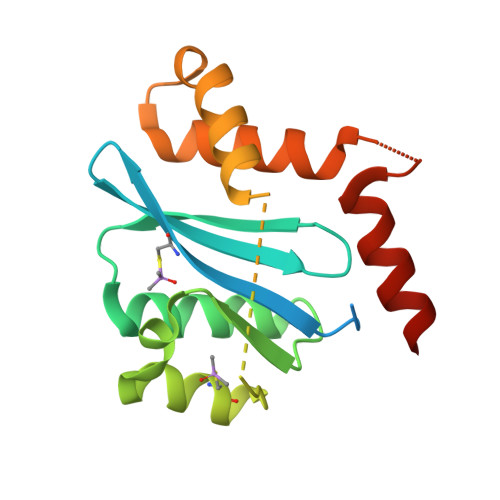An Isoquinoline Scaffold as a Novel Class of Allosteric HIV-1 Integrase Inhibitors.
Wilson, T.A., Koneru, P.C., Rebensburg, S.V., Lindenberger, J.J., Kobe, M.J., Cockroft, N.T., Adu-Ampratwum, D., Larue, R.C., Kvaratskhelia, M., Fuchs, J.R.(2019) ACS Med Chem Lett 10: 215-220
- PubMed: 30783506
- DOI: https://doi.org/10.1021/acsmedchemlett.8b00633
- Primary Citation of Related Structures:
6EB1, 6EB2 - PubMed Abstract:
Allosteric HIV-1 integrase inhibitors (ALLINIs) are a new class of potential antiretroviral therapies with a unique mechanism of action and drug resistance profile. To further extend this class of inhibitors via a scaffold hopping approach, we have synthesized a series of analogues possessing an isoquinoline ring system. Lead compound 6l binds in the v-shaped pocket at the IN dimer interface and is highly selective for promoting higher-order multimerization of inactive IN over inhibiting IN-LEDGF/p75 binding. Importantly, 6l potently inhibited HIV-1 NL4-3 (A128T IN), which confers marked resistance to archetypal quinoline-based ALLINIs. Thermal degradation studies indicated that at elevated temperatures the acetic acid side chain of specific isoquinoline derivatives undergo decarboxylation reactions. This reactivity has implications for the synthesis of various ALLINI analogues.
- Division of Medicinal Chemistry & Pharmacognosy, College of Pharmacy, The Ohio State University, Columbus, Ohio 43210, United States.
Organizational Affiliation:


















